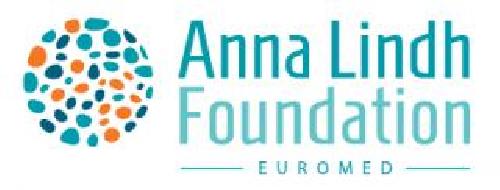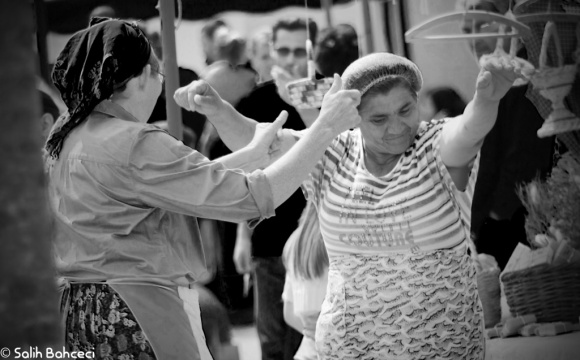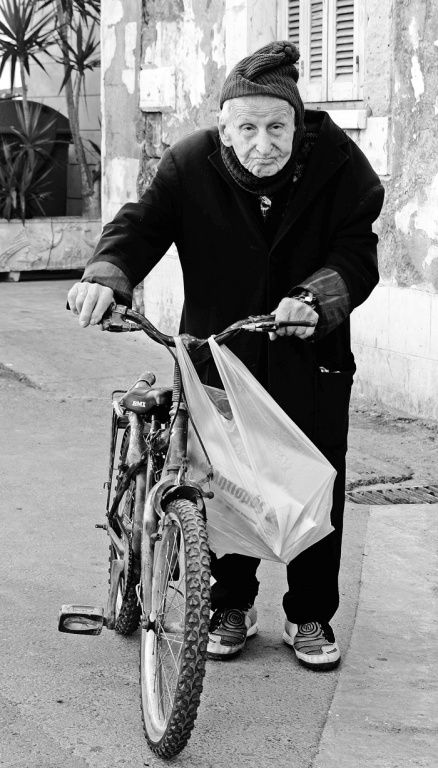This article was first published on page 16-17 of The Cyprus Weekly (3 August).
Yiouli Taki cuts a frustrated figure. As the coordinator for the NGO Initiative, an informal group of civil society representatives working towards reform of the legal framework for non-governmental organisations (NGOs), she has spent countless working hours organising meetings and drafting letters with the aim of achieving greater legal recognition of the sector. “This is as much about the process of reform as it is about the legislation”, says Taki, who doubles up as lead researcher at INDEX Research and Dialogue, a non-profit organisation working on issues of social policy. “Five years since this process started we do not know where we stand, and we are frustrated”, she adds.
Back in November 2007 things were on the up. Civil society, a novel concept for a country which just three years previous had joined the European Union (EU) had been limited to – and dominated by – institutions such as trade unions, the Church and political parties. The concepts of volunteerism and philanthropy covered the range of activities promoted by these institutions as a way of giving back to society. Cyprus’ accession to the EU created new opportunities and incentives for participation of a new form of civil society which had been developing in Cyprus since the late 1990s that was neither politically motivated nor philanthropic in its outlook on issues of societal concern. Increasingly active at the European level through networking and partnerships, Cypriot NGOs have started becoming more assertive in their demands for participation in decision-making processes.
In parallel, institutions of the state, the Planning Bureau in particular, started to see NGOs as potential implementing partners for policy both at home in abroad. European practice in the field of development cooperation – the delivery of financial support for countries in the developing ‘Global South’ – suggested that national agencies implement their policies in collaboration with local NGOs. CyprusAid, Cyprus’ development agency, has been implementing policy through ‘delegating’ funds through other EU member states such as Denmark and Ireland as well as through United Nations (UN) organisations like the World Food Programme. For collaboration to take place with local NGOs it was necessary for them to, amongst others, fulfil certain principles of financial transparency and accountability. Reform of the legal framework thus became a ‘wish’ for the Planning Bureau. “Not so much a wish, but also a need”, Taki responds.
On the initiative of the Planning Bureau funding was secured from the United Nations Development Programme in Cyprus (UNDP-ACT) and a reform process was launched. In April 2008 a report assessing Cyprus’ legal and regulatory framework was published by the European Centre for Not-for-Profit Law. The report, available online, included a series of recommendations for the relevant Ministries of the Interior and Finance calling especially for the adoption of legislation which would set out a “Public Benefit Status” category for NGOs. The NGO Working Group – formed in June 2008 and later renamed the NGO Initiative – was an effort on behalf of civil society to participate effectively in the public consultation process expected to be launched by the respective Ministries. “We had requested in our correspondence from the very beginning that our positions are taken into consideration in a future bill, and that we would like for there to be a consultation in line with standards set by the Council of Europe”, said Taki.
And there are serious shortcomings in the existing legislation. “The obstacles to registering an NGO under the Law on Associations and Foundations must be removed for the civil society sector to grow and become more professional”, says Nadia Karayianni, who represents the NGO Support Centre in the NGO Initiative. “Just recently we had the case of ACCEPT [an organisation working on lesbian, gay, bisexual, and transgender rights], for which official registration effectively depended on permission from the Church because the law asks for the opinion of so-called relevant stakeholders. I think this case illustrates clearly the problems associated with this approach.”
Exogenous factors have also made it harder for NGOs to operate effectively. At present there are disparate provisions for state funding for NGOs, with limited operational support available. There are also severe limitations on the activities that are deemed as ‘profit-making’ for NGOs, which makes financial sustainability a key concern. So when the government imposed a 350 Euro tax levy on registered companies, including not-for-profits in response to the financial crisis, those managing and working for not-for-profits have had to dig into their pockets to keep their organisations afloat. The likelihood is that this fee would have been avoided had new legislation been in place sooner. Taki insists that the problem is one of definition. “When you start structuring a bill you have to put some basic concepts down on paper, and this is where the state creates definitions that are conflicting with those given by the sector itself”, says Taki. “Instead of entering into a real dialogue they are trying to update the legislative framework based on outdated concepts of what constitutes public benefit activity.”
Things could be set to move before the end of the year. According to information obtained by the Cyprus Community Media Centre (CCMC) the Ministry of Finance’s work on all aspects of the legislation reform, including feedback received on relevant aspects handled by the Inland Revenue Department, was concluded in May this year. The new legislation package will be sent to the Law Office of the Republic of Cyprus for legal check once the summer period is over.
However for the process to be successful the Ministry of the Interior must expedite its own procedures as well. The submission of the two draft bills for Parliament approval at the same time will make it easier for lawmakers to see the correlation between them. “We are not aware of what is happening at the Ministry”, Taki insists. “We have had unanswered correspondence since November 2010! However, we acknowledge that a number of position changes took place in the last few months, and, having sent a new package to the Minister on 22 June of all this correspondence, we are hopeful that a constructive dialogue will start with Ms Eleni Mavrou very soon.”
From outside looking in, there is no reason why the appropriate legislative reforms cannot take place before the end of 2012. Inter-ministerial communication will be key for the bills to reach Parliament, and this is where the Planning Bureau could play its final role in the process. As the holder of the Presidency of the Council of the EU, a positive conclusion by December 2012 would be further indication of Cyprus’ European transition.





 CALL FOR EXPRESSIONS OF INTEREST FOR
CALL FOR EXPRESSIONS OF INTEREST FOR 





